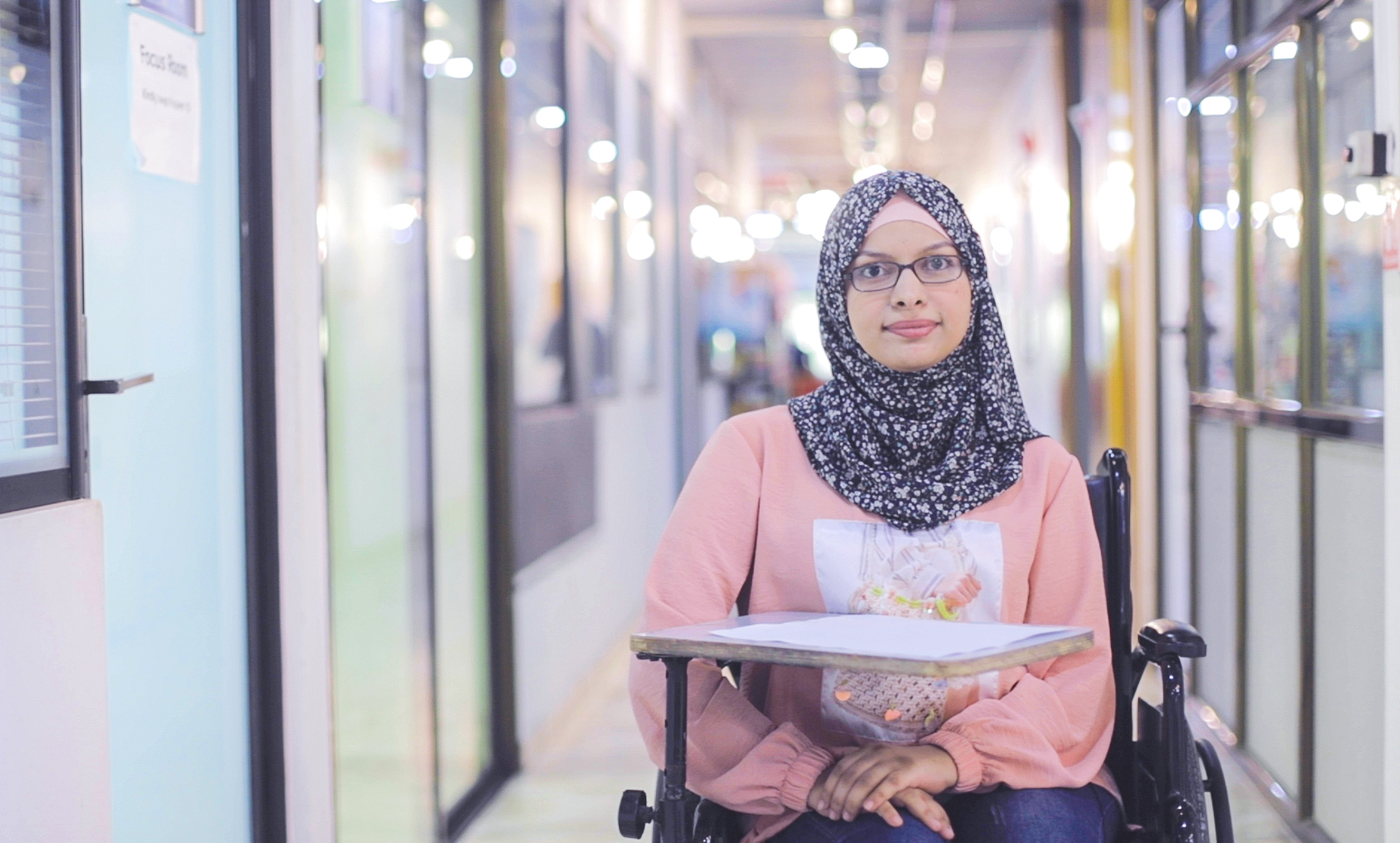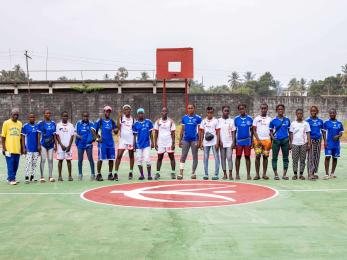School becomes a safe haven from violence
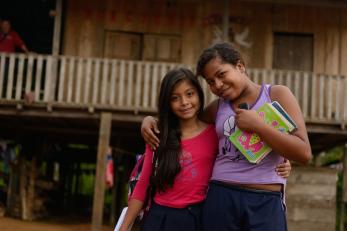
It’s early morning on a stormy day in the jungle of Putumayo, Colombia. Lucia*, 13, and the girls she rooms with wake from their dorm beds to get ready for the school day.
The mud is 10 inches deep around the boarding school grounds but the kids don’t miss a beat, plodding around in their rubber boots or bare feet and taking little notice of the marked trees announcing the presence of rebel forces in the area.
For many reasons — protection, discipline, financial hardship — many parents like Lucia’s choose to send their children to rural boarding schools like this one. Here, the children live away from their family homes for weeks at a time and traditionally receive little in the way of emotional or academic support outside of class time.
But Putumayo is a dangerous place to be a child. Domestic abuse, sexual assault and recruitment into armed groups are regular occurrences. And without proper guidance and life-skills education, young people are at great risk of becoming victims of violence.
That’s why Mercy Corps is working with the local government to make rural boarding schools in Colombia safer. We’re implementing programs that support children’s healthy development and teach parents and educators how to keep at-risk youth free from harm.
“They sent me here because my mom works and my stepfather also works, and my mom is afraid of leaving me at home all day,” explains Lucia. She attends sixth grade at the boarding school. “In our neighborhood, there are many drug addicts, rapists, gang members, so my mom was afraid that they were going to rob me or rape me, or that I could get into bad habits.”
Boarders receive three meals a day and a place to live away from the gangs, violence and drugs that dominate city life, returning home to see their families only on weekends if their parents can afford the $1.30 USD roundtrip bus fare.
Still, even while living at the school the children face challenges. They are commonly left largely unsupervised outside of the six hours of classes they attend each day, and the lack of structure and mentorship puts them in danger of becoming idle, rebellious or falling into trouble — and not reaching their full potential.
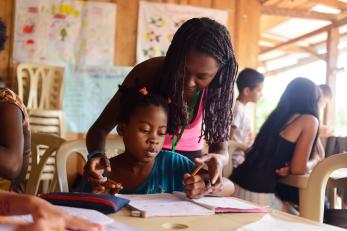
But Mercy Corps recently began installing caregivers, like Carmen*, in remote boarding schools to ensure these students receive the full-time support and guidance they need to stay on track.
As the caregiver at Lucia’s school, Carmen is responsible for Lucia and the 45 other children who board there. She schedules healthy, educational activities — yoga, games, singing, dancing — that engage the kids from the end of their school day until the generator clicks off at bedtime. She also helps the students with their homework and teaches them social skills, like respect and cooperation.
Lucia credits Carmen with helping her adjust to life at the boarding school.
“At the start, I felt really bored,” Lucia recalls. “I cried all the time because it’s not the same like home. At home I have my brothers and my stepfather, I have my mom, my friends. But here it’s different, there’s different faces. I cried every day.”
“Now the caregiver has helped me and I feel happier. Almost every afternoon we play games and do activities. I feel better; now I have friends.”
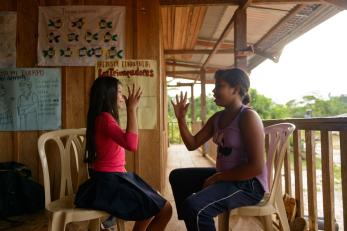
The activities integrate essential life-skills education including hygiene, self-protection, sexual education and how to avoid armed groups, which pose all-too-real threats like forced recruitment, child labor and gender-based violence. They also help students like Lucia develop friendship and teamwork skills.
“We help them using activities in which they have fun, but at the same time they’re learning about themselves,” explains Carmen. “The activities also encourage the children, because they’re alone and they don’t have their parents here. We provide this affection, this human warmth.”
“As caregivers, we’re not just here to give them support academically,” she continues. “We are also doctors, we’re mothers, fathers, we’re brothers and sisters, we’re classmates, we’re friends.”
This initiative also provides opportunities for the children to seek after-school tutoring, helps teachers improve their skills in leading language and math lessons, and promotes Afro-Colombian studies to enhance inclusion and understanding between Colombia’s ethnic groups.
This structure and education is meant to provide discipline, support and protection for at-risk children like Lucia, many of whom come from backgrounds of violence, poverty, armed conflict and displacement. Volatility like this can cause behavioral problems, lapses in education and dampened hopes — but it doesn’t have to.
Through this intervention, we’re reaching 46,500 children with the education and skills they need to build a future free of violence.
“I want them to go beyond and achieve what they are capable of. That they have a vision of being someone in life,” says Carmen of the program. “I want to give them a vision that they can overcome the situation that they’re in.”
And so far, the course of at least one little girl’s life has been changed for the better.
“I was a person who didn’t like anyone telling me anything, because then I’d complain and get in their faces and fight with them,” says Lucia. “Now I’ve changed a lot. With the advice from the teacher Carmen, I’ve changed a lot.”
“Now I feel capable of looking after myself,” she continues. “That’s going to help me follow my dreams in the future.”
*Names have been changed to protect the identities and safety of students and staff.
